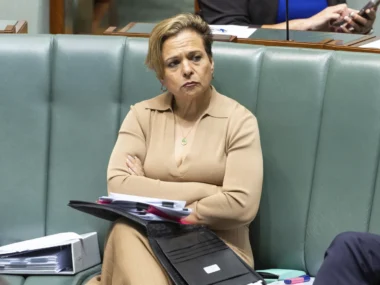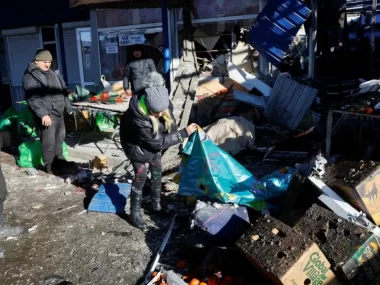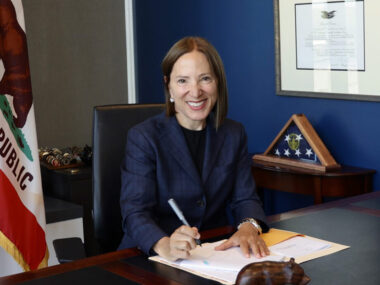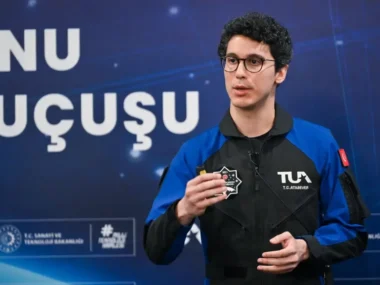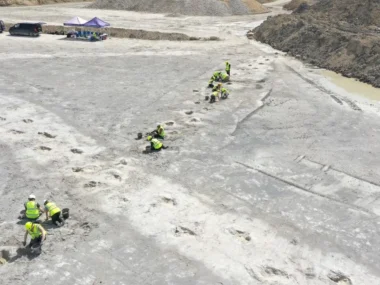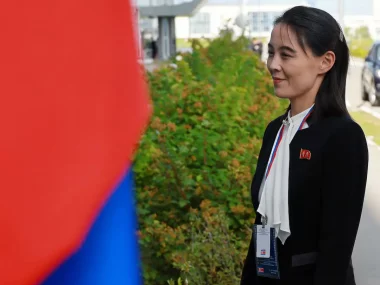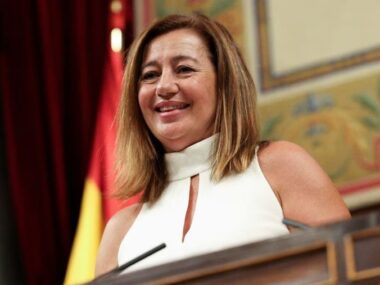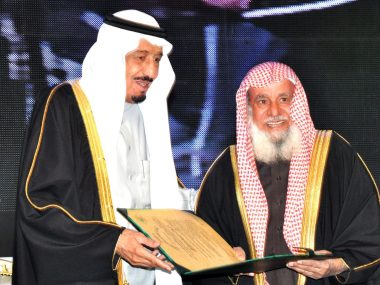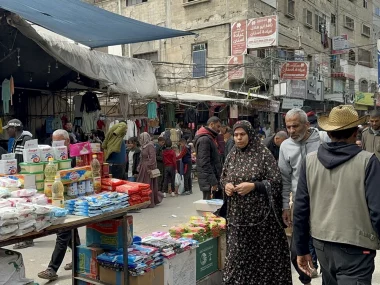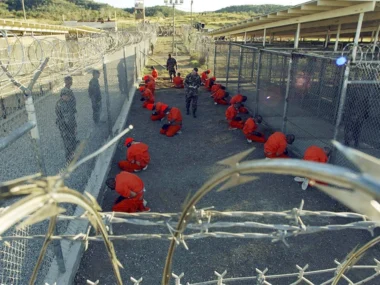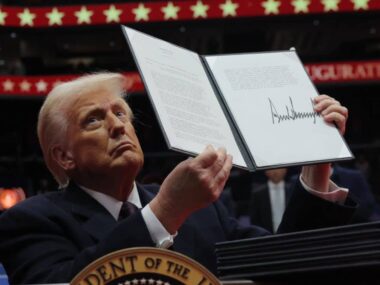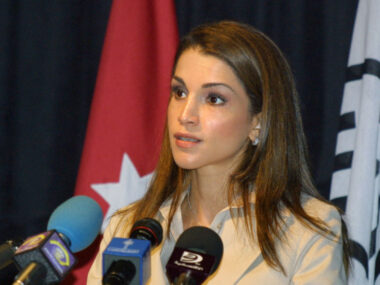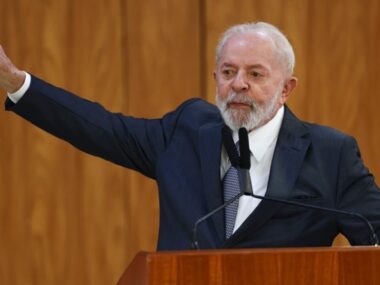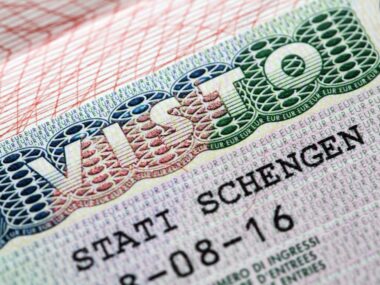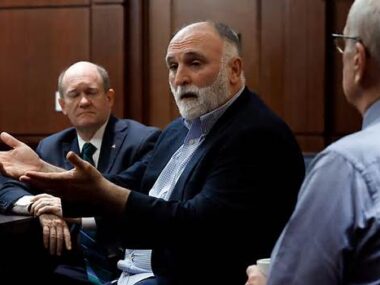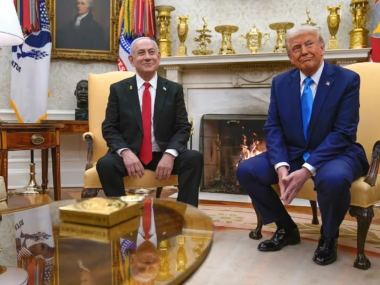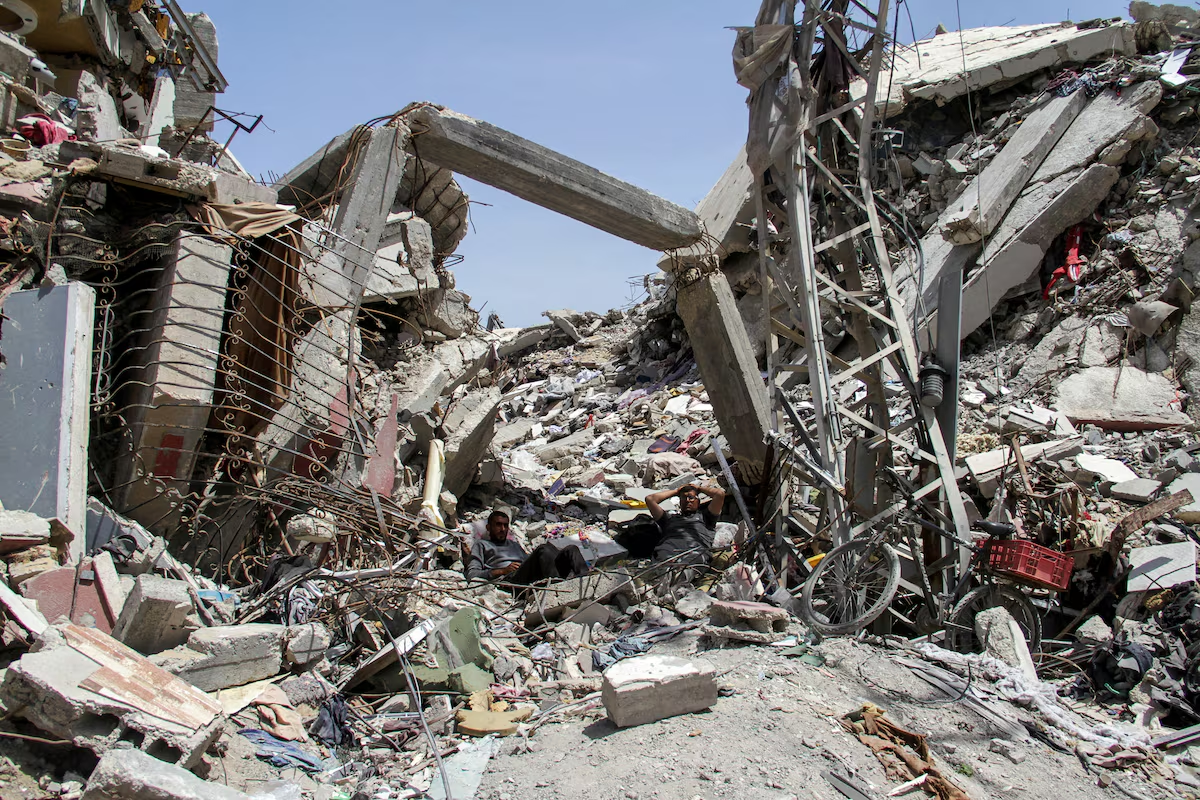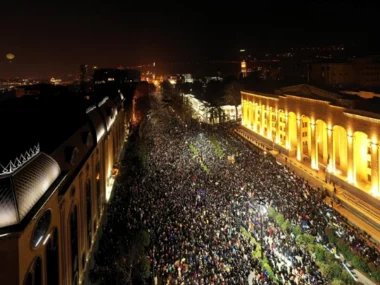At least 46 of 114 federal judges from 14 Argentine provinces have family members appointed to the Judiciary. This figure, obtained from the July 2024 staff list, has allowed for the creation for the first time of a detailed map of family relationships within the federal justice system in Argentina.
This was revealed by a journalistic investigation based on a database prepared by the Civil Association for Equality and Justice (ACIJ) , which reviewed the list of 3,601 federal justice officials in 14 provinces that make up 7 judicial districts. In all of them, cases of federal judges with family members employed were found.
Although not all cases show direct nepotism – some relatives may have been appointed based on professional merit or before the link – the high number of cases recorded suggests patterns that encourage public debate on the procedures for selecting officials and the need for greater transparency and objectivity in appointments. The fact that competitions have not been held to make the appointments, as provided for by the Law on Democratic Entry in force since 2013, prevents us from knowing for certain what the reasons were that motivated them.
The number of judges with relatives in the federal courts could be higher, since the relationship could have gone unnoticed or not been verified in this survey (see methodology ). From the universe examined, it appears that a significant number of named relatives are related to judges with more than 10 years of seniority in collegiate bodies (chamber judges, i.e. the second instance of a judicial process). Judges of federal criminal oral courts make up 48% of the 46 cases found.
Alert for nepotism in the Justice system
One of the ministers of the Supreme Court of Justice of the Nation, Ricardo Lorenzetti, warned about the nepotism phenomenon. He did so in Agreement 18/2024 of May 17, 2024 on the creation of a new secretariat in the highest court, stating that “staff is appointed with positions of officials, without competition, based on friendship or kinship, and contrary to the expectations of austerity that Argentine society demands.”
In his minority vote, which opposed those of his peers Horacio Rosatti, Juan Carlos Maqueda and Carlos Rosenkrantz, Lorenzetti insisted that the Argentine justice system “must be austere, compete for positions, respect merit and avoid nepotism.”
The Court never regulated the Democratic Entry Law , which has been in force in Argentina for 11 years. This loophole allowed the continued appointment of relatives of the judiciary without objective evaluations of their capabilities , unlike what happened in the public ministries of the Nation, where jobs are subject to the legal regime of competitions.
Two of Lorenzetti’s relatives work in the federal courts. His wife, Mara Beatriz Perren, is the administrative assistant secretary of the Federal Court of Rafaela (the city of origin of the judge of the Court in Santa Fe). And his sister-in-law, Ana Marcela Perren, is a clerk of the Federal Court of Rosario. When asked about this, Lorenzetti’s office responded that, since his wife entered the Judiciary two years before their marriage, “there is no nepotism in the case.” And, “as for Ana Marcela Perren, she was appointed in Rosario, a jurisdiction totally unrelated to that of the minister.”
Two other Supreme Court judges, Horacio Rosatti and Juan Carlos Maqueda, also have family members appointed to the federal courts. The first is the father of Emilio Rosatti, secretary of the Federal Criminal Court of Santa Fe. And Maqueda is the stepfather of Verónica Ferrer Deheza, secretary of the Federal Court of Appeals of Córdoba.
Both judges denied any connection to these appointments when asked for this article. Rosatti, who presides over the highest court and the Council of the Judiciary, said that his son entered the federal judiciary in the initial stage of the career ladder (interim assistant clerk) on December 28, 2007, and that he took over the Court on June 29, 2016, “that is, 8 years, 9 months and 1 day after” his son.
Maqueda, for his part, said that his stepdaughter joined the judiciary in 1998, 4 years before he took office at the Supreme Court. He then specified the 6 promotions that Ferrer Deheza received in 26 years of judicial career, and highlighted the titles and diplomas that he acquired. He also listed the official’s background to prove that he is “absolutely unrelated” to her appointment and her promotions.
The case of Santa Fe
In Santa Fe, the province of origin of Lorenzetti and Rosatti, 12 of 21 federal judges have relatives appointed. The case of Marcelo Bailaque, the federal judge of the city of Rosario, stands out. The magistrate is the father of Julieta Bailaque, a senior official; of Ramiro Bailaque, an assistant clerk; and of clerk Sofía Bailaque.
Recently, this judge was denounced for alleged irregularities in the processing of a case that would have favored drug boss Esteban Lindor Alvarado. With an extra coincidence: Bailaque and the accused shared an accountant, Gabriel Mizzau, and the son of this professional, Sebastián Mizzau, had entered in 2017 – through an appointment without a competition – to work at Federal Court No. 4. Who is the head of that unit? Bailaque himself, who did not respond to the journalistic query.
The pattern of appointments linked to the most senior judges can be seen in the case of José María Escobar Cello, who arrived at the Federal Criminal Court of the city of Santa Fe in 1994, 30 years ago. This judge is the father of Juan José Escobar Cello, administrative deputy secretary, and Francisco Escobar Cello, clerk, both of whom worked at the Oral Court. The father, who is believed to share his work with his two children, did not respond to the query formulated for this investigation.
In the federal court of Santa Fe there are also relatives of members of the Supreme Court of the province. María Magdalena Gutiérrez, electoral secretary of the interior of the Federal Court and niece of the Santa Fe judge Rafael Gutiérrez, and Esteban Falistocco, secretary of the Federal Court of Appeals of Rosario and son of the judge Héctor Falistocco, work there. None of these provincial magistrates responded to the queries. Neither did the 12 federal judges with relatives appointed in this jurisdiction.
Cordoba and La Rioja
In the federal court of Córdoba (which includes the province of La Rioja in its jurisdiction) family ties were found in 12 of the 20 members of the judiciary.
Graciela Montesi is the mother of Josefina Bobone, head of the Federal Criminal Court No. 3, and of Tomás Bobone, clerk of the Federal Court No. 3, as well as aunt of Alejo Montesi, officer of the Federal Court No. 1, and of Gerónimo Bobone, assistant of the Electoral Secretariat of Córdoba. But they were not the only members of the family who work in the Justice system. Pablo Montesi, brother of the judge and father of Alejo Montesi, was a federal judge in the Córdoba city of San Francisco until his death in August 2024. Graciela Montesi did not respond to the query regarding the appointment of these relatives and, in the case of her brother, the Federal Court of San Francisco requested information on who was responsible for the consultation on relationships. Despite being provided with further details, Pablo Montesi did not send any comment (although he was still in office in July 2024, following the news of his death it was decided to remove this judge from the database).
Only the judges Eduardo Daniel Ávalos and Abel Guillermo Sánchez Torres from the Federal Court of Appeals of Córdoba responded. Ávalos, a judge from the Federal Court of Appeals of Córdoba, said that Sofía Elena Sylvester, the secretary of that court, was “his wife”, but denied having influenced her appointment because at that time he was “a helper” in the Federal Court No. 1. “Over time, we got married and we continue to be married to this day, so fate has acted in this regard. I also have no children in the Judiciary: they work in professions other than law”, added the judge.
To explain his case, Sánchez Torres, a member of the Federal Court of Appeals of Córdoba, first offered the possibility of speaking in his office or virtually. Although a meeting via Zoom was proposed, the judge then sent an email in which he denied being currently related to his ex-wife, the chief of staff Alejandra Cecilia Cabido: “I find this occasion opportune to clarify an inconsistency in your investigation, since the aforementioned Cecilia Cabido is not a relative of mine,” he said. Sánchez Torres denied having had any influence in the appointment of his 3 children, María Agustina, Joaquín and Lucía, in the federal courts of Córdoba. However, he highlighted the academic background of his descendants.
In La Rioja, at least one sister-in-law, one brother-in-law, sons-in-law and one cousin work with federal judge Daniel Herrera Piedrabuena in the only federal court of first instance in that province. The case of Herrera Piedrabuena (who did not respond to the journalistic query for this article) stands out because, until recently, there was a kind of tacit rule that concealed the appointments of relatives by the practice of assigning them to other offices or units of the federal justice system itself. But with this judge, that rule does not apply: all his relatives work in his court.
Jujuy and Salta
In the federal courts of Jujuy and Salta, 7 of the 17 judges are related to employees and officials. Three of the judges have spouses who also work in the institution: the judge Lucio Renato Rabbi Baldi Cabanillas (his wife is Denise Blajean Bent, secretary of the Federal Criminal Court No. 2 of Salta) and the judges Esteban Hansen and Leonardo Bavio (respective spouses of Carola Martínez Allende, secretary of the Judicial Office of the Federal Court of Jujuy; and of María Martha Ruiz, secretary of the Federal Court No. 2 of Salta).
Rabbi Baldi Cabanillas did not respond to a request for comment, while Bavio did not respond regarding Ruiz in an extension of the query as he had done previously regarding a second cousin, Cristian Ricardo Bavio, secretary of the Oral Court of Salta, from whose appointment he completely disassociated himself: he said that he had entered in “1994 or 1995” when he was criminal secretary of the Federal Court of Salta.
For his part, a secretary of the Federal Superintendence of Justice of Jujuy sent Hansen’s discharge. According to that note, that judge had no participation in the appointment of Martínez Allende. The text refers to the fact that she had entered the Judicial Branch of the Nation in 2009; that she worked in the Electoral Secretariat of the Federal Court No. 1 of Córdoba and that she later obtained a transfer to the Electoral Secretariat of the Federal Court No. 1 of Jujuy “through a resolution of the Supreme Court of Justice of the Nation of 02/07/18 after the prior consent given by the then head of the Federal Court No. 1 of Jujuy, Mariano W. Cardozo.”
Domingo José Batule, from the Federal Criminal Court No. 2 of Salta, also sent a response. He attached the CV of Simón Augusto Batule Cabana with the following statement: “He is my son, he is a lawyer and he was appointed as ‘office chief’ by the Judges of the Federal Criminal Court No. 1 of Salta. For a correct and fair scrutiny by you and by society as a whole, I consider it relevant that his curriculum vitae also be published.”
A particular situation occurred with regard to the judge of the Oral Court No. 1 of Salta, Federico Santiago Díaz, and his brother, Carlos Felipe Díaz Lannes, secretary of the Federal Court of Villa Mercedes in San Luis. The magistrate denied having influenced the appointment of the official and warned that he lacked the authority to fill positions in the federal courts of San Luis: in addition, he pointed out that he and his brother had developed professionally in different places. “I would like to make it known that in order to access the position that I hold, I took numerous competitions, and I was appointed when I was part of 8 lists for oral courts in different parts of the country, and of those 8 lists, in 7 I was in first place on the list,” added the judge.
The other judges with relatives who work in this jurisdiction of the federal justice system did not respond to the journalistic request.
In the province of Salta, the Catalano surname is repeated in the courts. This surname is shared by three cousins: federal judges Gabriela Elisa Catalano and Mariana Inés Catalano, and the provincial court judge since 2007, Guillermo Catalano. In addition, Gabriela’s husband is a provincial judge. She and her cousin Mariana had been judicial officials before competing for and winning their current positions.
In her defense, Mariana Catalano confirmed that she had reached her current position as magistrate through a competition and asked that this be stated in this way so that the investigation would be rigorous. And Gabriela Catalano stated that her husband competed publicly to access his two appointments in the local Judicial Branch and that the information was available.
Mendoza, San Juan and San Luis
In the jurisdiction that includes Mendoza, San Juan and San Luis, at least 5 of the 22 heads of courts and members have relatives employed. In this district, the case of former judge Walter Bento (he was dismissed at the end of 2023) still resonates, whose wife Marta Boiza and 2 sons, Nahuel and Luciano, were employed in the Mendoza courts. The 4 relatives are involved in the judicial scandal over the sale of sentences and illicit enrichment that led to Bento’s expulsion and his imprisonment at the end of 2023.
Only Pablo Oscar Quirós, head of the Federal Court No. 2 of Mendoza, agreed to speak on the issue of the appointment of relatives to the benches of this jurisdiction. Quirós confirmed that he is the spouse of Marisol del Carmen Compañy, head of office of the Federal Court No. 1 of Mendoza (whom he said he met in 1997 in the same Judicial Branch where they both worked); and brother-in-law of the service officer Hernán Compañy. Regarding the latter, he specified that he entered the federal Justice before his oath as magistrate.
Missions, Chaco and Formosa
The relatives of the 46 judges identified in this investigation appear to be working at different levels of the judicial career, some of them at the highest levels: 15 of the 89 relatives identified are clerks. In fact, certain magistrates in office began their judicial careers as direct appointees and then competed in the National Council of the Judiciary to access their current courts and seats.
This is the case of the aforementioned Gabriela and Mariana Catalano in Salta, and of Verónica Skanata, currently head of the Federal Criminal and Correctional Court No. 1 of Posadas, Misiones. Skanata is the daughter of the federal judge Mirta Delia Tyden and the former civil judge of Oberá, Julio José Skanata. According to the curriculum vitae that she presented to the Council of the Judiciary of the Nation, Verónica Skanata graduated as a lawyer in 2001 and, a few months later, in April 2002, she was appointed secretary of the Criminal and Correctional Court of Misiones. This means that, by decision of the Federal Chamber that her mother is a member of, she went on to hold one of the highest positions in the judicial system without prior work experience.
Nine years later, Skanata competed for the Council of the Judiciary and became a judge: first with a substitute or temporary appointment in the Federal Court of Oberá and, later, with a permanent appointment, where she was subject to the jurisdiction of her mother. The position of secretary was one of the main antecedents of her CV in 2011. Neither her daughter, Verónica Skanata, nor her mother, Mirta Delia Tyden, wanted to make comments on the matter.
In Misiones, it was confirmed that 4 out of 9 judges have relatives working in the federal justice system, while in the neighbouring provinces of Chaco and Formosa (which share jurisdiction) 3 out of 10 are in that situation.
The only Misiones magistrate who agreed to make comments is Fabián Gustavo Cardozo, judge of the Federal Criminal Court of Posadas. Cardozo confirmed that his wife Mónica Oria joined in 1994, and that she is currently deputy administrative secretary and is in charge of the Library of the Federal Court of Appeals of Posadas. He added that he joined the Oral Court in 2004; that he met Oria in 2005; and that their son was born in 2007. He also specified that he has been a judge since 2022, and recalled that his Oral Court and the Court of Appeals exercise supervisory functions separately, so that “Oria has never depended on him in terms of work.”
In Chaco and Formosa, two magistrates issued responses. Zunilda Niremperger, head of the Federal Court No. 1 of Resistencia, explained that her sister Liliana Niremperger was hired temporarily in the Federal Court of Resistencia (Chaco) on 5 occasions (with extensions) since 2002. And that in 2007 she was appointed assistant clerk “always on the proposal of the titular judge Carlos Rubén Skidelsky” (who resigned in 2016). “In relation to Kamila Niremperger (niece), she entered the Judiciary as a substitute in August 2023 in the Federal Court No. 2 on the proposal of Ricardo Alcides Mianovich for a short period and then again (was) appointed for a short term, all data that I will complete once the head of the Federal Court No. 2 sends said information to the undersigned,” said Niremperger. The anticipated expansion did not arrive.
Ricardo Alcides Mianovich, federal judge No. 2 of Resistencia, stated the following: “To respond eventually and subsequently, removing myself from institutional functions that have suitable control mechanisms, will imply the prior demonstration on your part of lexicographic elegance, a more elevated, detailed and complete information, and the complete absence of paragraphs alluding to possible or suggestive implications, an extortionate plot or the possible affectation of the good name, dignity or prestige of third parties, an intolerable limit that I will not enter into, nor will I give the slightest importance to.”
In the last jurisdiction analysed, the provinces of Chubut, Santa Cruz and Tierra del Fuego, appointments of relatives were found for 3 of 15 members of the judiciary. None of those with appointed relatives made any comments on the matter.
Democratic Income Law
In 2013, the National Congress passed the Democratic Entry Law to put a stop to the “hand-picked” filling of judicial positions. Alberto Binder, a doctor of law, expert in judicial processes and co-founder of the Institute for Comparative Studies in Criminal and Social Sciences (Inecip), emphasized that the Argentine federal justice system does not comply with this rule, which establishes that judicial positions must be filled by competition. “ Nepotism is illegal because there is a national law that stipulates how positions in the judiciary must be assigned. This does not imply that it is a crime, beyond the fact that it is highly reprehensible conduct from an ethical point of view ,” observes the academic and researcher.
For sociologist and doctor in Social Sciences Juan José Nardi, “the main problem of nepotism is that it blurs the administrative career and, in some way, also ends up generating conflicts within the courts on issues that have to do with promotions.” According to this expert, “the members of these blood and political families – in the sense of affinity, and of patronage and godfatherism – run marathon races, often skipping steps, which produces enormous inequalities within the Judicial Branch.”
Judicial Leopardism
What explains the prevalence of family relationships in the Argentine justice system? This is not a new phenomenon. As Binder, an academic expert in judicial reforms, explains, “nepotism has always existed, but it became more pronounced when judicial positions became coveted. This began to grow during the Menem period (1990s).”
In 2007, Argentina ratified the United Nations Convention against Corruption , which provides that countries shall endeavour to adopt systems for the recruitment, hiring, retention, promotion and retirement of non-elective public employees and officials “based on principles of efficiency and transparency, and on objective criteria, such as merit, equity and aptitude.” And in 2013, Congress passed the Law on the Democratic and Equal Entry of Personnel into the Judiciary, with the aim of ending the practice of hiring employees who are relatives or acquaintances of judges.
The Democratic Entry Law was never applied in the courts of justice due to successive decisions and omissions by the highest court that left the regulation out of play. The Supreme Court maintained – as stated in 2013, temporarily – the powers of appointment and promotion of personnel in the federal and national chambers.
Judicial Salaries
Binder explained that part of the reason for this persistence has to do with the juicy salaries of the judicial sector: “ It happens that the lowest positions in the federal justice system today are rewarded with huge salaries . It is an extraordinary bounty.”
The salary of an assistant, the lowest position on the judicial salary scale, is equivalent to 4 minimum, living and mobile salaries ($234,315 as of May 2024, or US$236 at the official exchange rate). According to the salary scale for April 2024 , an assistant receives $923,243 per month (US$927). At the other end of the spectrum, a Chamber secretary, one of the highest judicial official positions, receives a salary of at least $2.8 million (US$2,814), an amount that corresponds to 12 minimum salaries. The amounts listed are merely indicative because the judicial scale does not include all the items included in the receipts .
Salary incentives and job stability encourage what Binder calls “cross-appointments ,” when two judges return the favor of appointing each other’s relatives. “I appoint your relatives and you appoint mine. Everyone knows this and is familiar with it,” the academic explained.
For the sociologist and doctor in Social Sciences Juan José Nardi, there are reciprocal “remunerations” between the members of the same body. This researcher also sees that “favors” are common, which are usually done in the first instance to ingratiate themselves with the appellate court. For example, the fact of appointing relatives of chamber members in exchange for a substitution, a function that grants greater decision-making power and a salary bonus because, in this way, the same judge is in charge of 2 courts and, due to this additional workload, his remuneration improves.
But, in essence, what prevails in this practice for Binder is “the laxity and ethical disinterest that prevails in the Judiciary.” He added that “nepotism shows the paradox that one of the professions that should be regulated with greater rigor, such as that of lawyers and judges, is the one that is least regulated.”
Professor Binder argued that if nepotism is not limited, the “original perversion of endogamy” will continue to spread, making it extremely difficult to “generate independent judiciaries.”
The most recent failed attempt to curb the so-called judicial “dedocracy” was the 2013 Law on Democratic Entry. But, as previously stated, those who must ensure its observance found a way to place themselves above it. And, as Binder warned, nothing disturbed the reproduction of that status quo that is the great judicial family.



